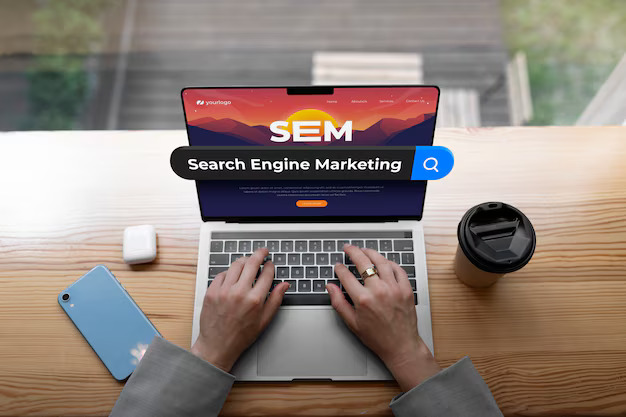Paid search marketing is a powerful way to drive targeted traffic, increase brand visibility, and boost conversions. However, simply running ads is not enough to guarantee success. A well-optimized campaign requires careful planning, strategic execution, and continuous optimization. Understanding the key factors that influence the performance of a paid search marketing campaign is essential for maximizing return on investment (ROI) and achieving long-term success.
Understanding the Core of Paid Search Marketing
Before diving into the success factors, it’s important to understand how paid search marketing works. This form of digital advertising allows businesses to bid on keywords relevant to their products or services. When users search for those terms, ads appear on search engine results pages (SERPs), driving traffic to the advertiser’s website. Popular platforms like Google Ads and Microsoft Advertising make it possible to target specific audiences based on demographics, location, and user intent.
Businesses often turn to SEM services to manage and optimize their campaigns effectively. These services provide expertise in ad copywriting, bid management, and audience targeting to help businesses maximize their ad spending. A well-managed campaign ensures that every dollar spent contributes to business growth and customer acquisition.
Key Factors That Influence the Success of a Paid Search Campaign
1. Keyword Selection and Strategy
The foundation of a successful search engine advertising campaign lies in choosing the right keywords. Selecting high-intent, relevant keywords ensures that ads reach the right audience. Using a mix of:
- Broad match: To capture a wider audience
- Phrase match: To target users searching for specific queries
- Exact match: To ensure precision in targeting
Additionally, incorporating negative keywords helps filter out irrelevant searches, preventing wasted ad spend on unqualified leads. Regular keyword research and refinement improve campaign performance over time.
2. Compelling Ad Copy
A well-crafted ad copy grabs attention and encourages users to click. Effective ad text should be:
- Clear and concise: Communicate the value proposition immediately
- Action-driven: Include strong calls to action (CTAs) like “Shop Now” or “Get a Free Quote.”
- Relevant to user intent: Match search queries to ad messaging
Testing different ad variations through A/B testing helps determine which headlines, descriptions, and CTAs generate the best results.
3. Landing Page Experience
A successful paid search campaign doesn’t stop at the ad. The landing page where users arrive after clicking should be:
- Highly relevant: Match the ad’s promise
- Fast-loading: Reduce bounce rates with quick page speed
- Mobile-friendly: Optimize for different devices
- Conversion-focused: Feature a clear CTA, such as signing up or making a purchase
A poorly optimized landing page can lead to high bounce rates, resulting in wasted ad spend.
4. Ad Quality and Relevance (Quality Score)
Search engines use a Quality Score to determine how relevant and effective ads are. Factors affecting Quality Score include:
- Expected CTR (Click-Through Rate): The likelihood of users clicking the ad
- Ad relevance: How closely the ad matches the search intent
- Landing page experience: The usability and relevance of the destination page
A high Quality Score lowers cost-per-click (CPC) and improves ad placements, leading to better results.
5. Bid Strategy and Budget Management
Setting the right bid strategy determines how often and where ads appear. Advertisers can choose from:
- Manual bidding: Full control over CPC
- Automated bidding: Uses machine learning to optimize for conversions
- Target ROAS (Return on Ad Spend): Focuses on maximizing revenue per dollar spent
A well-balanced budget allocation ensures that high-performing campaigns receive adequate funding while minimizing wasted spend on underperforming ads.
6. Audience Targeting and Segmentation
Effective audience targeting improves conversion rates by showing ads to the most relevant users. Advanced targeting options include:
- Demographic targeting: Age, gender, and income level
- Geographic targeting: Location-based ads for local businesses
- Behavioral targeting: Reaching users based on browsing and purchase history
Custom audience lists, such as retargeting website visitors or past customers, further enhance ad effectiveness.
7. Ad Extensions for Enhanced Visibility
Ad extensions provide additional information, making ads more engaging. Common extensions include:
- Sitelink extensions: Direct users to specific pages
- Callout extensions: Highlight key selling points
- Location extensions: Display business addresses for local targeting
- Call extensions: Allow direct phone calls from ads
Using relevant extensions improves ad visibility and click-through rates.
8. Competitor Analysis and Market Trends
Analyzing competitors’ strategies provides valuable insights. Tools like Google Ads Auction Insights and SEMrush help track competitor performance, uncovering opportunities for optimization. Staying updated with search engine advertising trends ensures that campaigns remain competitive.
9. Conversion Tracking and Performance Analysis
Tracking conversions helps measure the success of paid search campaigns. Important metrics include:
- CTR (Click-Through Rate): Measures ad engagement
- Conversion rate: Tracks the percentage of users who complete a desired action
- Cost per conversion: Analyzes how much is spent per successful conversion
Utilizing Google Analytics and other tracking tools enables data-driven decision-making for campaign improvements.
10. Continuous Optimization and A/B Testing
Paid search campaigns require ongoing refinement. A/B testing different ad variations, landing pages, and bid strategies helps identify what works best. Regular performance reviews ensure that campaigns remain efficient and profitable.
Final Thoughts
The success of a paid search marketing campaign depends on multiple factors, from keyword selection and ad quality to audience targeting and budget management. Implementing a data-driven approach and continuously optimizing campaigns lead to better engagement, higher conversions, and improved ROI. Businesses that invest in expert SEM services can further enhance their campaign performance and gain a competitive edge in the digital landscape.
By focusing on these key elements, businesses can create effective search engine advertising campaigns that drive meaningful results and long-term success.
Read More: How AI-Powered Landing Pages Enhance User Experience & Engagement



